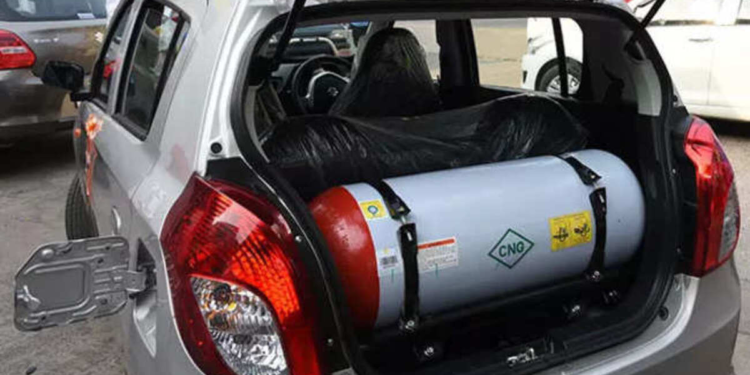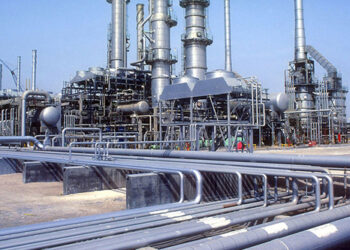A CNG tank explosion occurred at a NIPCO CNG station in Aduwawa, Benin City, the capital of Edo State, injuring multiple individuals.
While no fatalities have been reported, the incident has raised safety concerns.
In viral footage circulating on X (formerly Twitter) on Thursday, the aftermath of the explosion is captured. A station wagon, whose entire rear section was obliterated, is shown with shrapnel scattered across the premises.
Several nearby vehicles were also damaged, with visible dents from the blast. The explosion reportedly occurred during the refueling of the station wagon’s CNG cylinder.
The video also revealed several injured individuals, with the person recording noting that one of the victims, whose leg may have been severed, had been rushed to the hospital. Blood stains from the injured were visibly splattered on the ground at the scene.
At one point in the 3-minute, 22-second video, the ruptured CNG cylinder from the exploded vehicle is shown, with a large section torn off. Observers in the footage speculated that the cylinder appeared to have been fabricated by a local welder, suggesting potential flaws in its construction.
The incident highlights the risks associated with improper handling and maintenance of CNG equipment, emphasizing the need for strict safety protocols at refueling stations.
PCNGI reacts to NIPCO CNG tank explosion incident in Benin City
The Presidential Compressed Natural Gas Initiative (PCNGI) has reacted to the CNG tank explosion at a NIPCO station in CO station in Ikpoba Hill, Benin City, on October 16, 2024, via its official X account on Thursday.
The initiative expressed concern over the incident, extending condolences to the injured while noting that no lives were lost.
According to PCNGI, safe handling of all hydrocarbons is critical. The statement noted that an examination revealed that the cylinder involved was improperly welded and modified, making it unsuitable for CNG.
It further disclosed that the police, regulatory authorities, and NIPCO management are conducting an investigation, with PCNGI coordinating efforts.
The statement noted that the incident highlights the need for the upcoming Nigeria Gas Vehicle Monitoring System to ensure CNG remains a safe and clean fueling option. PCNGI urged stakeholders to comply with the new regulations and patronize only accredited conversion centers for safety.
What you should know
Since the federal government began advocating for the wider adoption of compressed natural gas (CNG) as an alternative to increasingly expensive petrol and diesel, public safety concerns have emerged.
Insights from CNG conversion experts at PCNGI-approved conversion centers in Lagos emphasize that, when properly executed, CNG conversions can be safe.
Experts highlighted that CNG cylinders are made from reinforced materials specifically designed to endure extreme conditions, making them significantly more robust than traditional fuel tanks.
Additionally, CNG is lighter than air, allowing gas to disperse quickly in the event of a leak, which minimizes the risk of accumulation that could lead to explosions.
Safety features in CNG systems, such as pressure release valves and automatic shut-off sensors, further enhance safety by effectively managing leaks or irregularities.
Although there is a recognized risk of pressure explosions due to CNG being compressed to 2900 psi (200 bar), this risk is mitigated by release valves that discharge excess pressure during refueling.
Experts also stress the importance of regular maintenance to ensure continued safety and optimal performance of CNG systems.
CNG kits are equipped with gauges that enable vehicle owners to monitor pressure levels continuously, which adds an extra layer of safety.
As discussions about CNG conversions continue, these insights aim to inform vehicle owners and promote safe practices in the use of compressed natural gas for transportation, especially in light of recent incidents that highlight the critical need for rigorous safety protocols.
























